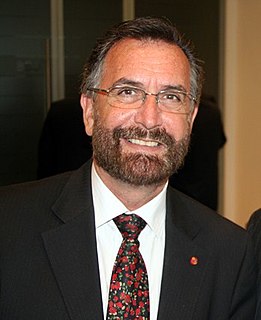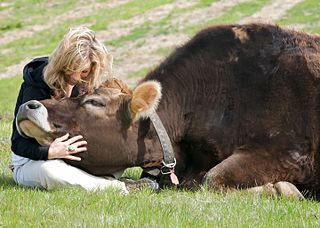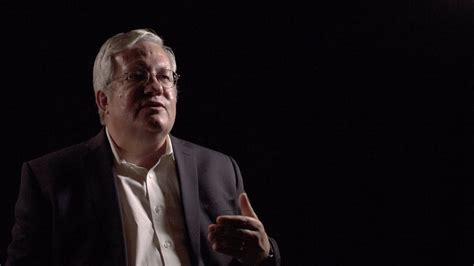Top 806 Consumption Quotes & Sayings
Explore popular Consumption quotes.
Last updated on April 14, 2025.
Current lifestyles and consumption patterns of the affluent middle class…involving high meat intake, consumption of large amounts of frozen and convenience foods, ownership of motor vehicles, golf courses, small electric appliances, home and work place air-conditioning, and suburban housing are not sustainable...
Until the 19th century, the term 'to consume' was used mainly in its negative connotations of 'destruction' and 'waste'. Tuberculosis was known as 'consumption', that is, a wasting disease. Then economists came up with a bizarre theory, which has become widely accepted, according to which the basis of a sound economy is a continual increase in the consumption (that is, waste) of goods
The current treatment of animals in the livestock trade definitely renders the consumption of meat as halachically unacceptable as the product of illegitimate means. ... As it is halachically prohibited to harm oneself and as healthy, nutritious vegetarian alternatives are easily available, meat consumption has become halachically unjustifiable.
I shall argue that it is the capital stock from which we derive satisfaction, not from the additions to it (production) or the subtractions from it (consumption): that consumption, far from being a desideratum, is a deplorable property of the capital stock which necessitates the equally deplorable activity of production: and that the objective of economic policy should not be to maximize consumption or production, but rather to minimize it, i.e. to enable us to maintain our capital stock with as little consumption or production as possible.
If instead of looking at income, you look at levels of consumption, if anything that's become more equal. The fraction of families that have a dishwasher, that have a sewing machine, that have a television set. In respect to consumption, it's very hard to avoid the view that people have been getting more equal rather than more unequal.
If the level and amount of consumption and waste of the western rich countries ever reaches the poor countries, it will mean the end of humanity. The big world corporations are busy doing it...The production, selling, consumption, accumulation, wastes' and advertisement explosions in the western rich countries and the continued population explosion in the poor countries will turn into major catastrophes.
There is no evidence to show that prohibition has ever had its intended impact. Of course, just as banning beef has reduced beef consumption, banning alcohol will lead to reduced alcohol consumption. But, there appears to be little or no correlation between, say, domestic violence or household impoverishment and prohibition.
Car prices play a large role in calculating PPPs even while they play no role whatsoever in the consumption or consumption needs of the poor. And the prices of rice, bread and beans play a small role in calculating PPPs even though they play a huge role in meeting the consumption needs of the poor. So the World Bank's method of comparing and converting everything at general purchasing power parities into US dollars is highly distorting within an exercise whose purpose it is to determine whether households are or are not capable of meeting their basic consumption needs.
Women are clearly the major consumers in far more than just female categories. It doesn't matter whether it is purchases of cars, cosmetics, or even products for men, female consumption power is the leading consumption power in the world. Any company that overlooks the woman as the decision maker is making a huge mistake.
It is not how we breed, keep and kill animals for human consumption that has been the impetus for vegetarianism for thousands of years. It is that we breed, keep and kill animals for human consumption. Throughout the centuries the common thread in the arguments against eating animals is the fact that since we have no nutritional requirement for the flesh or fluids of animals, killing them to simply satisfy our taste-buds or habits or customs amounts to senseless slaughter, and senseless slaughter is no small thing.
consumption can be very harmful to the world. I'm not a big proponent of the idea that consumption makes you morally bad, but there are consequences to our acts, and those consequences are environmental degradation and the huge social inequalities that make our standard of living in the United States possible.
Purchasing power is a license to purchase power. The old proletariat sold its labour power in order to subsist; what little leisure time it had was passed pleasantly enough in conversations, arguments, drinking, making love, wandering, celebrating and rioting. The new proletarian sells his labour power in order to consume. When he’s not flogging himself to death to get promoted in the labour hierarchy, he’s being persuaded to buy himself objects to distinguish himself in the social hierarchy. The ideology of consumption becomes the consumption of ideology.
In most of the affluent populations I have considered, the prevalence of coronary disease is associated with the consumption of sugar. Since sugar consumption is only one of a number of indices of wealth, the same sort of association (to coronary disease) exists with fat consumption, cigarette smoking, cars.
Developed and benefited from the unsustainable patterns of production and consumption which have produced our present dilemma. It is clear that current lifestyles and consumption patterns of the affluent middle class-involving high meat intake, consumption of large amounts of frozen and convenience foods, use of fossil fuels, appliances, home and work-place air-conditioning, and suburban housing-are not sustainable. A shift is necessary toward lifestyles less geared to environmentally damaging consumption patterns.
The illusion that consumption - and its correlative, income - is desirable probably stems from too great preoccupation with what Knight calls "one-use goods," such as food and fuel, where the utilization and consumption of the good are tightly bound together in a single act or event. ... any economy in the consumption of fuel that enables us to maintain warmth or to generate power with lessened consumption again leaves us better off. ... there is no great value in consumption itself.
It was only in the late nineteenth century and then the twentieth century, with the maturation of consumer capitalism, that a shift was made toward the cultivation of unbounded desire. We must appreciate this to realize that late modern consumption, consumption as we now know it, is not fundamentally about materialism or the consumption of physical goods. Affluence and consumer-oriented capitalism have moved us well beyond the undeniable efficiencies and benefits of refrigeration and indoor plumbing.
Speaking biologically, fruit in a slightly shriveled state is holding its respiration and energy consumption down to the lowest possible level. It is like a person in meditation: his metabolism, respiration, and calorie consumption reach an extremely low level. Even if he fasts, the energy within the body will be conserved. In the same way, when mandarin oranges grow wrinkled, when fruit shrivels, when vegetables wilt, they are in the state that will preserve their food value for the longest possible time.
What worries some people about consumption (and I confess at the outset to be one of these ambivalent creatures, fat but troubled in paradise) is that the affluent, technologically advanced West seems more and more focused not on consuming to live but living to consume. The problem with consumption, and the consumer capitalism that has pushed it to feverish historical extremes, is that it has become so all-consuming.
Life as we know it is fundamentally unsatisfying. I think most folks feel this to be true. They know that a life of aimless consumption isn't much of a life. And work offers us very little satisfaction. Plus our work and consumption is destroying the environment. And this is in the rich countries. Add starvation, etc. to the mix, and you have a lot of people in the world pretty unhappy with things as they are. Modern communications make all of this known to people far and wide, and we see the fundamental unfairness of it all.
Many Christians, though keenly sensitive to the dangers of greed and discontent that come with an economy of continually increasing consumption, nevertheless feel that it is worth risking if only it can end man's physical miseries. The trouble is that it can't. In a finite world, continually increasing consumption is just not possible.
I think we'll start defining wealth and success differently and develop new approaches to consumption. Things that have always signified wealth and security - home ownership, new cars, luxury goods - have become a burden for many people and will be replaced by more experiential consumption like travel and recreation, self-improvement, and so on. By divesting themselves of certain big-ticket possessions that have been keeping them tied down, people will gain a new freedom to live more meaningful lives. Changes in consumption and lifestyle are key to Great Resets.
We've wanted to produce more in the 19th century and the 20th century in order to give man the possibility for more dignified human life; but actually what has happened is that production and consumption have become means - have ceased to be means and have become ends, and we are production crazy and consumption crazy.
As mass production has to be accompanied by mass consumption, mass consumption, in turn, implies a distribution of wealth ... to provide men with buying power. ... Instead of achieving that kind of distribution, a giant suction pump had by 1929-30 drawn into a few hands an increasing portion of currently produced wealth. ... The other fellows could stay in the game only by borrowing. When their credit ran out, the game stopped.
I am now being criticized (by the opposition) for being irresponsible for saying `I will not raise the consumption tax rate while I am in office,' ... But, when my successor does raise the consumption tax rate, it will not be simply a matter of being irresponsible. He will be criticized for raising the tax.
Whole ideology of consumption almost to the point of religion. Whether it's the consumption of entertainment or the consumption around buying things, we're so caught up with our appetites that we don't have a clear distinction about what we need and what we just want. Plus, the decline of trade unions is a factor. When you have powerful unions, you have a working class that is politicized.
We have become a plague upon ourselves and upon the Earth. It is cosmically unlikely that the developed world will choose to end its orgy of fossil energy consumption, and the Third World its suicidal consumption of landscape. Until such time as Homo Sapiens should decide to rejoin nature, some of us can only hope for the right virus to come along.
We are social animals and we have a hierarachical and unequal society. It is a class society, and the class system creates and perpetuates the social role of consumption. We display our class membership and solidify our class positioning in large part through money, through what we have. Consumption is a way of verifying what you have and earn.
In the European Union, a fleet average of 95 grams of CO2 per kilometer will be permitted in 2020. This corresponds to fuel consumption of about four liters (per 100 kilometers; about 59 mpg). We have to continue reducing the fuel consumption of our vehicles and offer hybrid and electric vehicles, or else we will be unable to achieve these values.
Casein [the main protein found in dairy], in fact, is the most 'relevant' chemical carcinogen ever identified; its cancer-producin g effects occur in animals at consumption levels close to normal-striking ly unlike cancer-causing environmental chemicals that are fed to lab animals at a few hundred or even a few thousand times their normal levels of consumption.
Consumption is the sole end and purpose of all production; and the interest of the producer ought to be attended to only so far as it may be necessary for promoting that of the consumer. The maxim is so perfectly self-evident that it would be absurd to attempt to prove it. But in the mercantile system the interest of the consumer is almost constantly sacrificed to that of the producer; and it seems to consider production, and not consumption, as the ultimate end and object of all industry and commerce.
The effect of the post-Enlightenment project for human society is that all human activity is absorbed into labor. It becomes an unending cycle of production for the sake of consumption. The modern concept of "built-in obsolescence" makes this clear. The cycle of production and consumption has to be kept going, and the work of the artist or craftsman who aims to create something enduring becomes marginal to the economic order.






















































